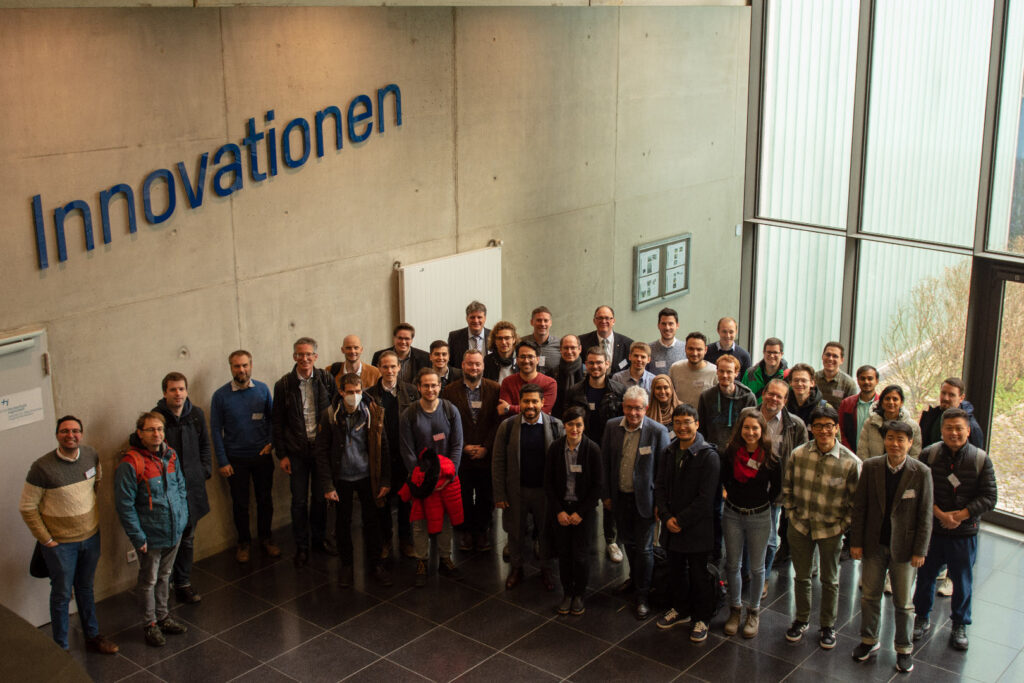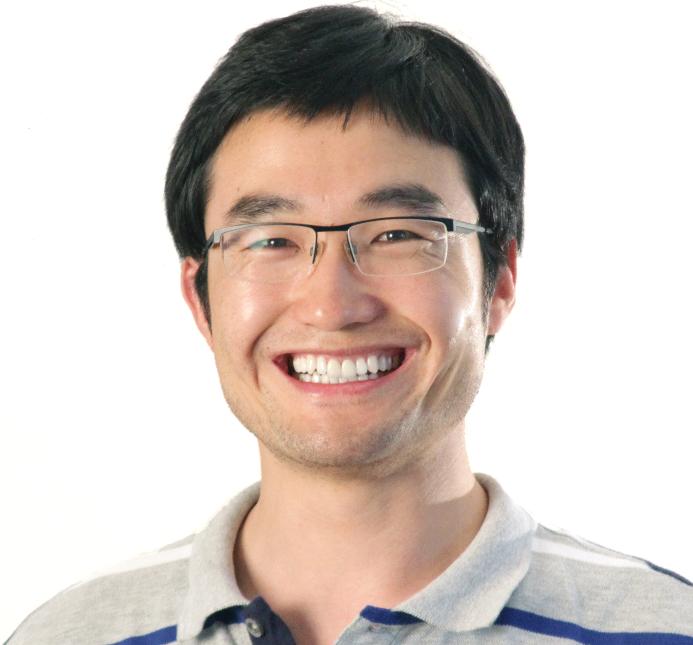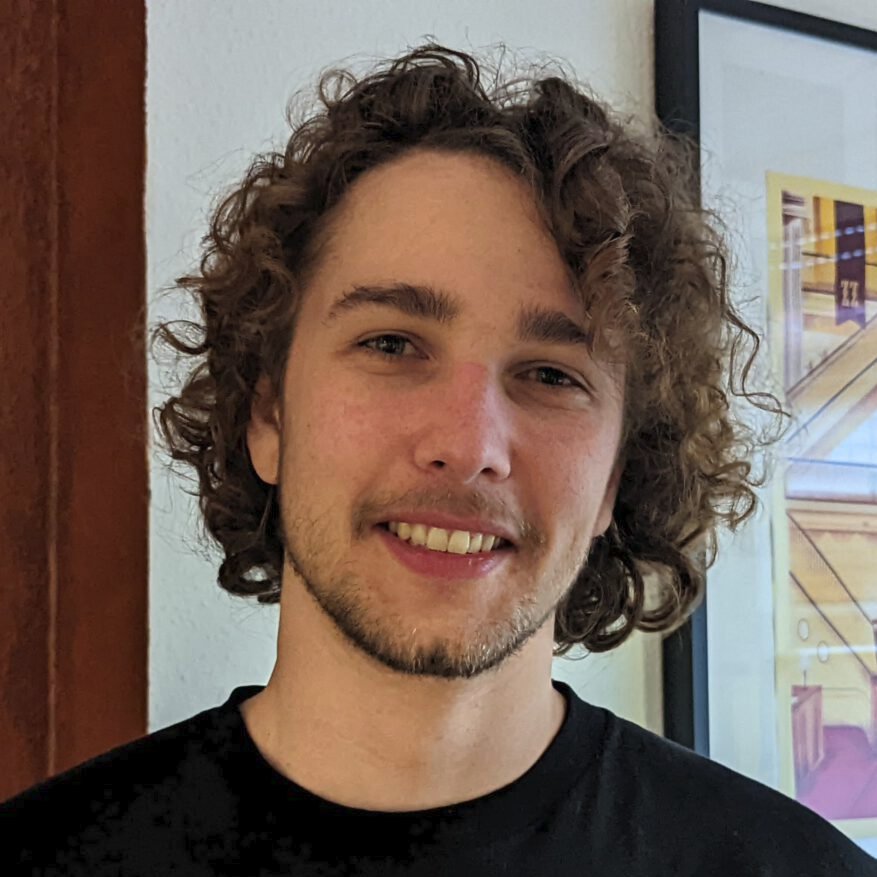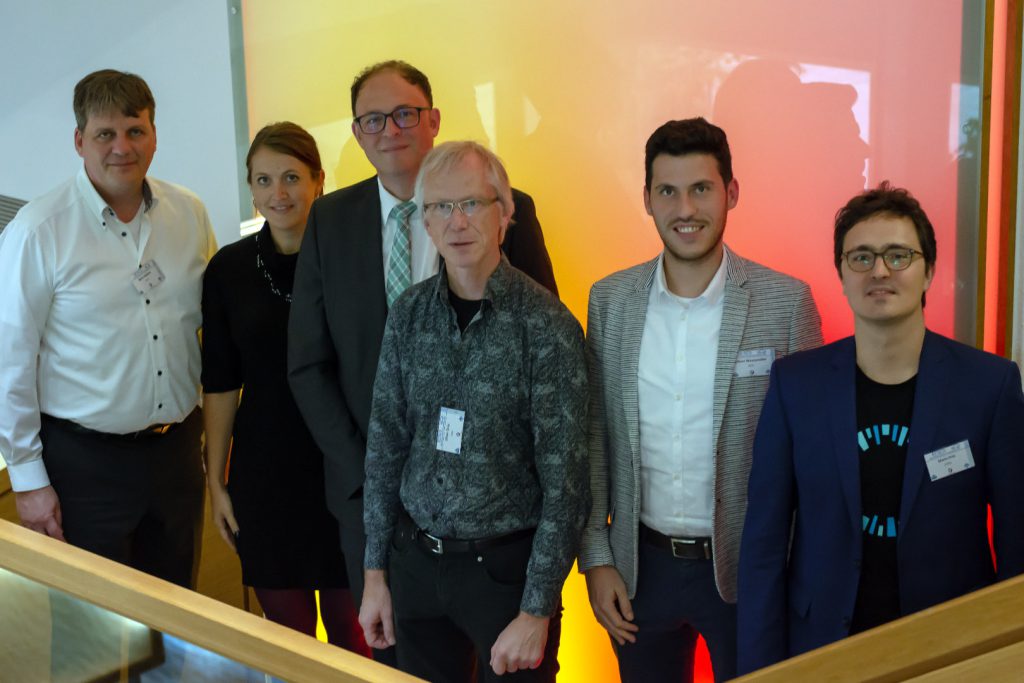| 08:00 |
Registration |
|
| 08:45 |
Opening & Welcome |
Björn Brücher (General Chair), Prof. Hans-Joachim Hof (Local Host), Prof. Christoph Krauß (Program Chair) |
| 09:00 |
Keynote - Adaptable and Scalable Machine Perception for Autonomous Driving |
Dr. Dengxin Dai (Senior Researcher at the MPI for Informatics) |
| 09:45 |
Increasing pedestrian detection performance through weighting of detection impairing factors (View on ACM) |
Korbinian Hagn (Intel)*; Oliver Grau (Intel) |
| 10:05 |
SynPeDS: A Synthetic Dataset for Pedestrian Detection in Urban Traffic Scenes View on ACM |
Thomas Stauner (BMW AG)*; Frederik Blank (Bosch); Michael Fürst (DFKI); Johannes Günther (Intel Deutschland GmbH); Korbinian Hagn (Intel); Philipp Heidenreich (Opel Automobile GmbH); Markus Huber (Accenture); Bastian Knerr (QualityMinds); Thomas Schulik (ZF); Karl Leiss (BIT-TS) |
| 10:25 |
Break & Poster Session |
|
| 10:55 |
Keynote - Probabilistic and Machine Learning Approaches for Autonomous Robots and Automated Driving |
Prof. Wolfram Burgard (Professor of Robotics and Artificial Intelligence at the University of Technology Nuremberg) |
| 11:40 |
Evaluation of Level 2 Automated Driving Artificial Intelligence Readiness in Simulated Scenarios View on ACM |
David Tena-Gago (University of the West of Scotland)*; Jose M. Alcaraz-Calero (University of the west of Scotland); Qi Wang (University of the west of Scotland) |
| 12:00 |
Predictive Uncertainty Quantification of Deep Neural Networks using Dirichlet Distributions View on ACM |
Ahmed Hammam (Opel Automobile GmbH)*; Frank Bonarens (Opel Automobile Gmbh/ Stellantis N.V.); Seyed Eghbal Ghobadi (THM); Christoph Stiller ( Institute of Measurement and Control Systems, Karlsruhe Institute of Technology (KIT) ) |
| 12:20 |
Lunch |
|
| 13:20 |
Keynote - How to defend connected intelligent vehicles: Transferring established Information Security best practices to the vehicular world |
Jan Lange (Senior Defensive Security Expert at CARIAD SE) |
| 14:05 |
Challenges and Directions for Automated Driving Security View on ACM |
David Förster (Robert Bosch GmbH); Thomas Bruckschlögl (Robert Bosch GmbH); Jason Omer (Robert Bosch GmbH)*; Tom Schipper (Robert Bosch GmbH) |
| 14:25 |
Systematic evaluation of automotive intrusion detection datasets View on ACM |
Thomas Rosenstatter (RISE Research Institutes of Sweden)*; Nishat I Mowla (RISE Research Institutes of Sweden); Arash Vahidi (RISE Research Institutes of Sweden) |
| 14:45 |
Break & Poster Session |
|
| 15:15 |
More Secure Collaborative APIs resistant to Flush-Based Cache Attacks on Cortex-A9 Based Automotive System View on ACM |
Jingquan Ge (Continental-NTU Corporate Lab)*; Yuekang Li (Continental-NTU Corporate Lab); Yaowen Zheng (Continental-NTU Corporate Lab); Yang Liu (Nanyang Technology University, Singapore); Sheikh Mahbub Habib (Continental Automotive Technologies GmbH) |
| 15:35 |
Steering Your Car With Electromagnetic Fields View on ACM |
Oliver Pöllny (Mercedes-Benz AG)*; Frank Kargl (Universität Ulm); Albert Held (Was with Mercedes-Benz AG, now retired) |
| 15:55 |
Analysis of the DoIP Protocol for Security Vulnerabilities View on ACM |
Patrick Wachter (Mercedes-Benz Tech Innovation); Stephan Kleber (Mercedes-Benz Tech Innovation)* |
| 16:15 |
A Data Protection-Oriented System Model Enforcing Purpose Limitation for Connected Mobility View on ACM |
Sarah Syed-Winkler (Continental Automotive Technologies)*; Sebastian Pape (Continental Automotive Technologies); Ahmad Sabouri (Continental Automotive Technologies) |
| 16:35 |
Break & Poster Session |
|
| 17:05 |
Lightweight Privacy-Preserving Ride-Sharing Protocols for Autonomous Cars View on ACM |
Sara Ramezanian (University of Helsinki)*; Gizem Akman (University of Helsinki); Mohamed Taoufiq Damir (University of Helsinki); Valtteri Niemi (University of Helsinki) |
| 17:25 |
Combined Safety and Cybersecurity Testing Methodology for Autonomous Driving Algorithms View on ACM |
Mohsen Malayjerdi (Tallinn University of Technology)*; Andrew J Roberts (Tallinn University of Technology)*; Olaf Maennel (Tallinn University of Technology); Ehsan Malayjerdi (Tallinn University of Technology) |
| 17:45 |
Closing & Get Together |
Björn Brücher (General Chair), Prof. Hans-Joachim Hof (Local Host), Prof. Christoph Krauß (Program Chair) |




